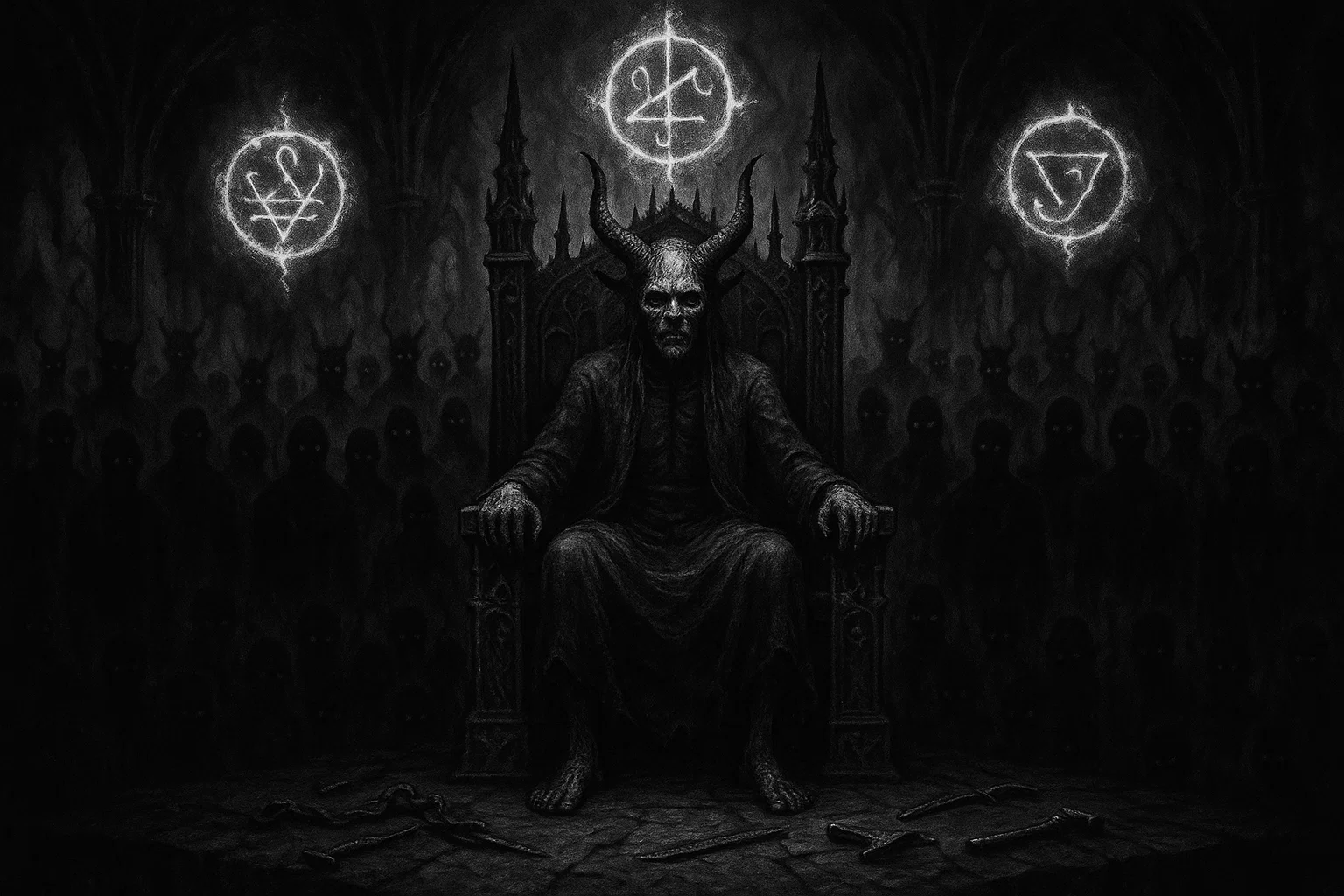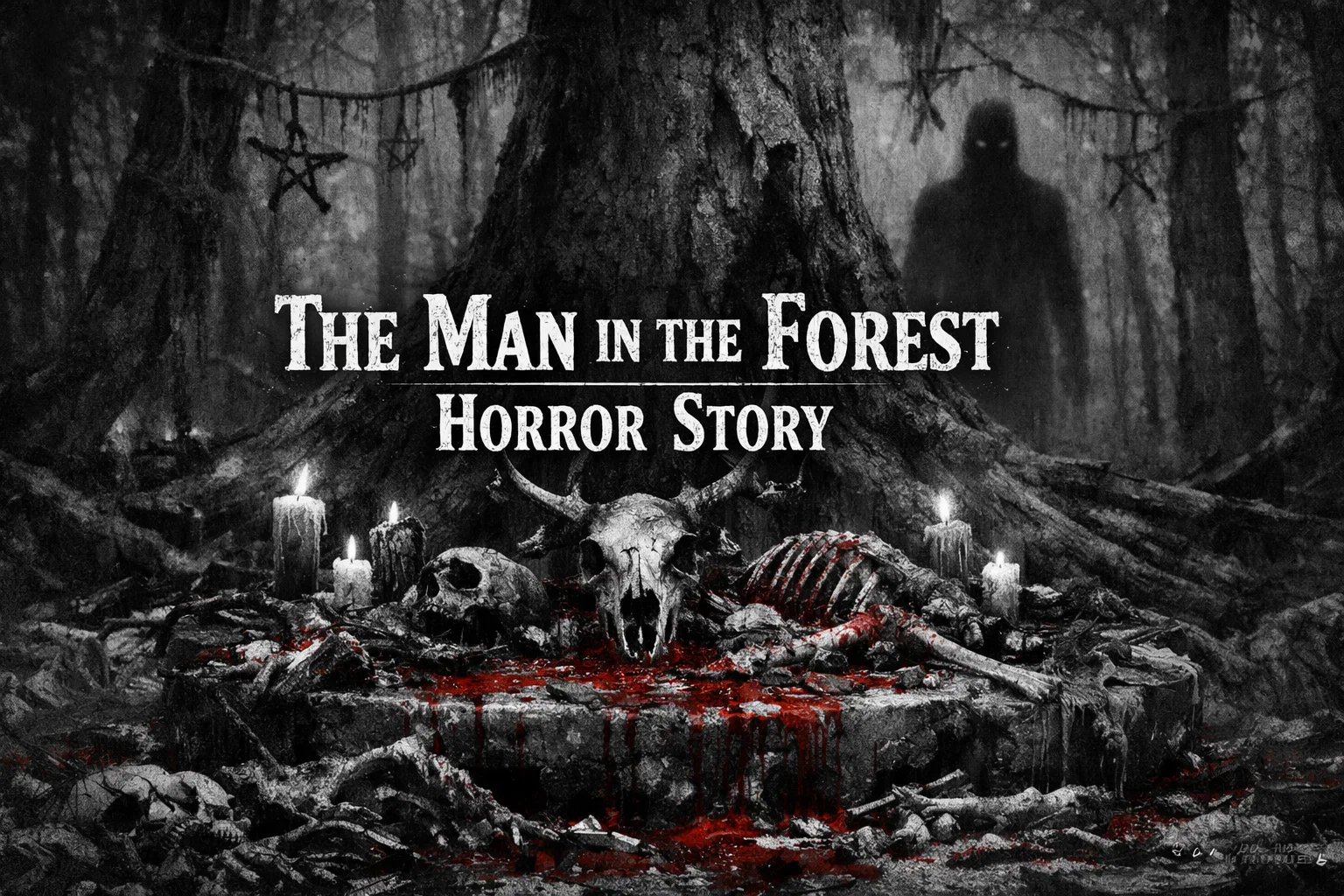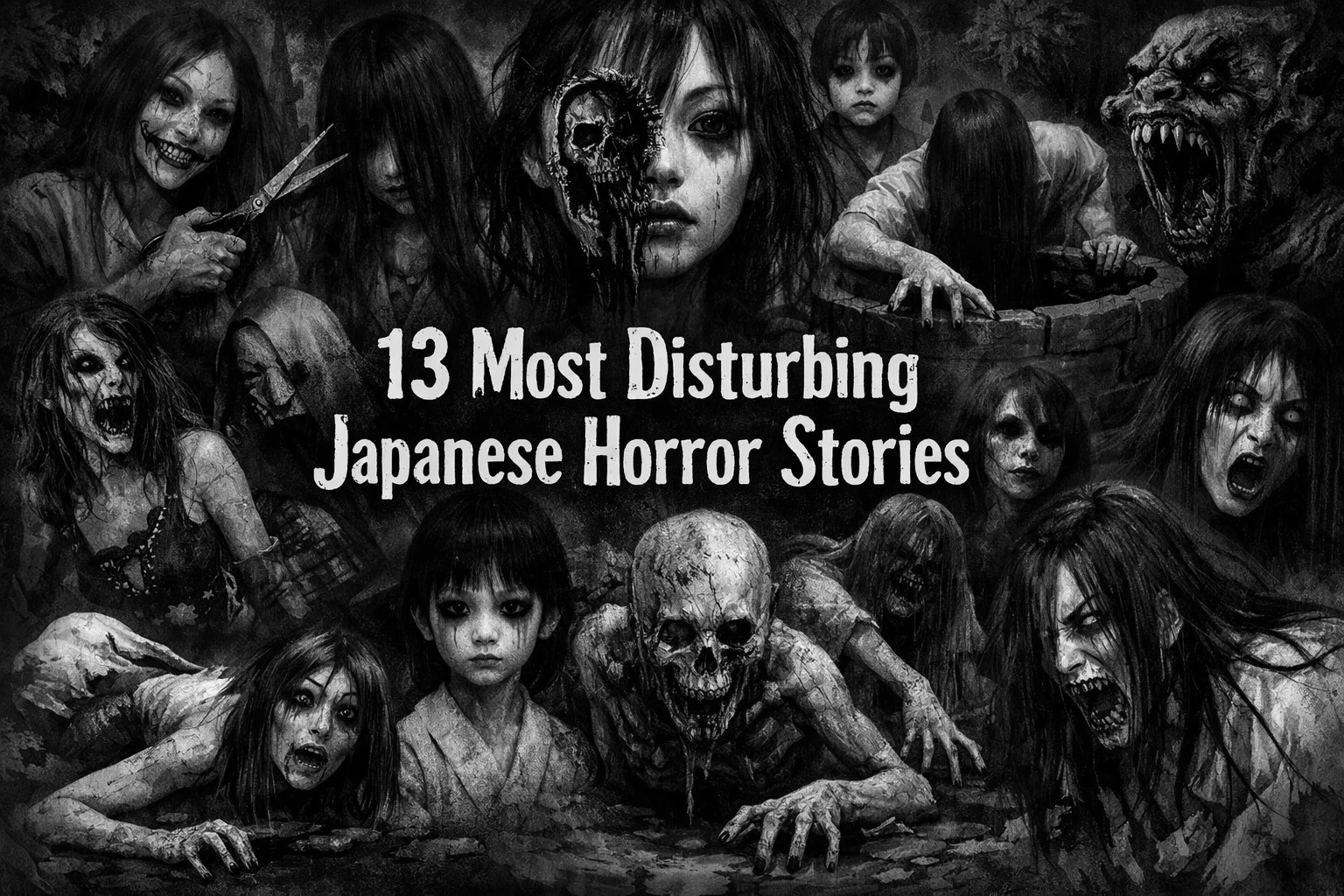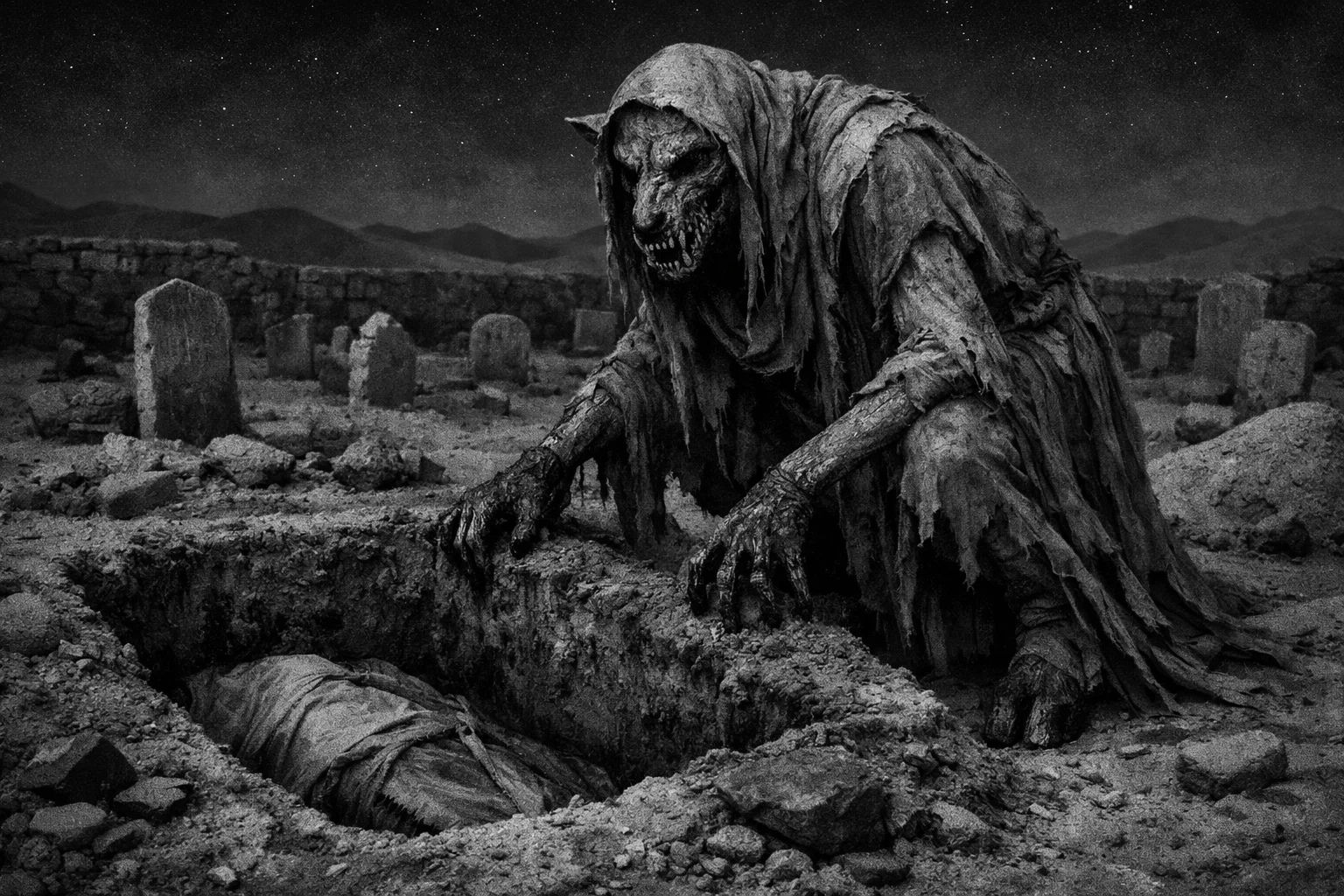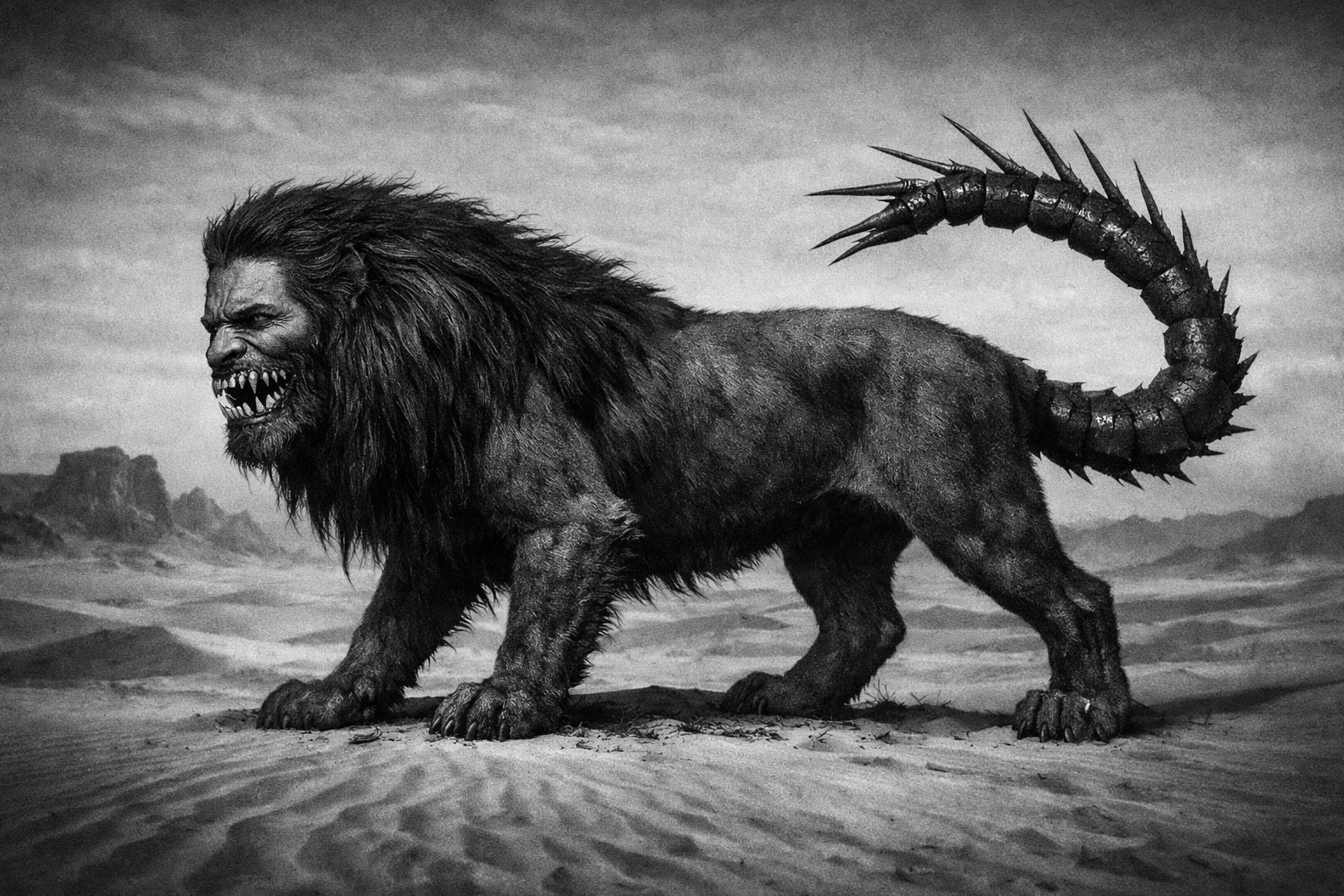In the shadowed recesses of infernal lore, where ancient grimoires whisper tales of temptation and ruin, lurks Vual, a cunning duke whose manipulations twist the threads of human affection and foresight into knots of despair. This demonic entity, embodying the darkest facets of desire and deception, commands legions that sow discord under the guise of unity.
What secrets might Vual unveil from the past, present, or future, and at what soul-crushing cost? Could his ability to forge friendships from feuds lead not to harmony, but to betrayal and downfall?
As a figure steeped in the Ars Goetia tradition, Vual represents the perilous allure of forbidden knowledge and unnatural bonds, drawing the unwary into webs of corruption. How does this shape-shifting demon exploit human weaknesses, turning love into obsession and alliances into chains? His presence in demonology raises haunting questions: What if procuring a woman’s love meant damning her eternally? Or if glimpsing tomorrow’s events blinded one to moral decay?
Exploring Vual‘s depths uncovers a tapestry of infernal intrigue, where every gift conceals a curse, beckoning readers to ponder the true price of demonic intervention.
Summary
Key Information
| Attribute | Details |
|---|---|
| Name | Vual, Uvall, Voval, Vreal, Wal, Wall, occasionally corrupted as Volac in variant texts |
| Title | Mighty Great Duke, Strong Duke of the Infernal Realms, Duke of Temptation and Deception |
| Gender | Male, manifesting with masculine traits in human form |
| Role | Manipulator of affections, forger of treacherous alliances, revealer of temporal secrets that lead to ruin |
| Hierarchy | Duke within the demonic nobility, mid-tier commander in Hell’s structured order |
| Servitors | Leads 37 legions of lesser demons, with some accounts varying to 30 or 36; these include spirits specialized in emotional subversion and illusory prophecies |
| Superior Demon | Subservient to higher infernal monarchs such as Corson, Asmoday, or ultimately Lucifer, enforcing their decrees through subtle corruption |
| Powers | Instigates obsessive loves, engineers false friendships across enmities, divulges past events to haunt, present truths to manipulate, and future visions to mislead |
| Appearance | Emerges as a formidable dromedary with piercing gaze, shifting to a human male figure marked by exotic features and a resonant, imperfect Egyptian accent |
| Etymology | Rooted in ancient linguistic fragments suggesting silence, mystery, or binding forces, with potential ties to Semitic and Egyptian vocabularies |
| Associated Figures | Linked to fellow Goetic demons like Sitri and Dantalion in themes of lustful deception; echoes in fallen angels from the Order of Potestates |
| Weaknesses | Susceptible to sacred invocations, angelic countermeasures like Asaliah, and rituals invoking divine light to dispel his illusions |
| Opposing Angel/Saint | Countered by the angel Asaliah for truth and justice, or saints such as Raphael who guard against deceptive spirits |
| Equipment/Tools | Sigil for binding summons, Venusian artifacts like copper daggers for channeling corruptive energies, potions of enchantment |
| Pantheon | Primarily within Christian demonology’s Solomonic branch, with echoes in Abrahamic infernal classifications and occult hierarchies |
Etymology
The name Vual delves into obscure linguistic origins, potentially deriving from Hebrew roots associated with “to wail” or “to be silent,” evoking a demon who operates through hushed manipulations and suppressed truths. This Semitic connection implies Vual as a silencer of conscience, where his revelations come whispered, luring victims into quiet complicity with evil. In demonological studies, such etymological ties underscore his role in muffling moral warnings, allowing temptations to flourish unchecked.
Alternative interpretations link Vual to ancient Egyptian phonetics, given his imperfect command of that tongue, perhaps from “Ual” or “Wal,” terms hinting at guardianship or enclosure in Coptic dialects.
This suggests an origin as a confining spirit, trapping souls in cycles of false affection and deceptive foresight. Occult scholars speculate corruption from Latin “vallum,” meaning rampart or wall, symbolizing Vual as a barrier against genuine bonds, erecting walls of illusion that isolate and corrupt.
Variations like Uvall or Voval emerge from medieval transcriptions, where scribal errors blended Aramaic influences with Greco-Roman elements, possibly echoing “volo,” to wish or will, aligning with his power to impose desires unnaturally. In broader etymological analysis, Vual may connect to Indo-European roots for “binding” or “weaving,” portraying him as a weaver of fateful threads that entangle mortals in infernal pacts.
These layered meanings paint Vual not merely as a name, but as a invocation of entrapment, where uttering it summons forces that bind the speaker to darkness.
Further exploration reveals potential ties to Mesopotamian nomenclature, where similar sounding entities denoted spirits of the underworld, guardians of hidden knowledge that demanded sacrificial loyalty. In Kabbalistic contexts, Vual‘s name resonates with sephirotic inversions, representing perverted wisdom from the Tree of Life’s shadow side. Ultimately, the etymology encapsulates Vual‘s essence: a demonic force whose very designation conceals dangers, tempting the curious with promises while veiling the inevitable corruption.
You May Also Like: The Girl in the Red Skirt (Hanako-san) | Horror Story
What does the Demon Vual Looks Like?
Vual first appears as a massive dromedary, its single hump rising like a sentinel of the desert wastes, with coarse, matted fur that shimmers unnaturally under infernal light. This camel form boasts elongated neck and limbs, eyes burning with malevolent cunning, and a gait that echoes thunderous warnings of approaching doom.
At the summoner’s insistence, Vual morphs into a human male, retaining an aura of exotic menace with dark, shadowed features suggestive of ancient Nile origins. His voice booms deeply, laced with an imperfect Egyptian inflection that mangles words, adding to his disorienting presence.
Historical and Mythological Background
Vual‘s origins trace to the celestial hierarchies before the great fall, where he served in the angelic Order of Potestates, or Powers, tasked with regulating cosmic energies and thwarting chaos. As a fallen entity, his descent corrupted these duties into tools for sowing disorder, aligning him with Lucifer’s rebellion against divine order. This pre-fall status positions Vual as a perverter of authority, twisting protective forces into oppressive chains.
Connections to ancient deities abound in speculative demonology, with Vual‘s Egyptian speech hinting at links to Thoth, the ibis-headed god of knowledge and magic, but inverted to spread misleading prophecies. In Mesopotamian lore, he echoes Enki, the cunning water god, yet Vual uses fluidity for drowning souls in illusion. Greek parallels draw to Eros, god of love, but Vual‘s affections breed obsession rather than joy. Norse influences might tie him to Loki, the trickster, through forged alliances that unravel societies.
Broader mythological ties extend to Hindu asuras, demonic beings opposing devas, where Vual mirrors their leadership in deceptive wars. In African folklore, he resembles trickster spirits like Anansi, weaving webs of false friendship. Celtic legends evoke him as a fae lord, binding mortals with enchanted pacts. These global echoes portray Vual as a universal archetype of corrupted wisdom, infiltrating diverse pantheons to exploit human frailties.
The Celestial Rebellion and Fall
In the primordial war of heaven, Vual, then a Power angel, wielded energies to maintain balance but succumbed to Lucifer’s seductive promises of autonomy. Legends narrate Vual using his influence to fracture angelic loyalties, forging temporary alliances that weakened the divine host. As battles raged across ethereal planes, Vual‘s proto-powers manipulated emotions among warriors, turning steadfast guardians into hesitant traitors.
Defeated, Vual plunged into abyssal depths, his grace warping into demonic essence. This myth highlights his transition from cosmic regulator to infernal saboteur, where fallen Potestates like him became dukes, commanding legions to mimic heavenly orders in hellish parody. Interactions with Lucifer solidified his role, granting him domains over love and time as weapons against humanity.
You May Also Like: Complete Guide to Wyoming Bigfoot Sightings (1967–2025)
Solomon’s Binding and Temple Deceptions
King Solomon, empowered by divine rings, summoned Vual to aid in temple construction, compelling him to reveal architectural secrets from ancient civilizations. Myths depict Vual complying outwardly, but subtly corrupting workers by igniting rivalries disguised as friendships, delaying progress with illusory loves.
Solomon countered with angelic seals, forcing Vual to foster genuine cooperation among laborers. Yet, Vual tempted courtiers with visions of future glories, leading some to treasonous plots. This legend underscores Vual‘s cunning, portraying him as a bound yet scheming servant whose contributions masked attempts at sabotage.
Medieval Witch Hunts and Temptations
During European witch trials, Vual featured in confessions as a patron of forbidden romances, luring accused witches with promises of love potions derived from his essences. Folklore tells of a noblewoman invoking Vual to win a rival’s husband, only for the union to dissolve in madness as past secrets surfaced.
In these tales, Vual interacted with familiars, directing them to spread discord in villages. His Egyptian ties evoked fears of ancient curses, blending with local spirits to amplify terror. Such stories served as cautions, illustrating Vual‘s role in escalating human suspicions into witch-hunting frenzies.
Influences in Alchemical Transmutations
Alchemists viewed Vual as a symbol of base desires transmuted into gold-like illusions, his shape-shifting mirroring the great work’s stages. Legends narrate an adept summoning Vual for temporal insights into elixir formulas, but receiving corrupted recipes that poisoned seekers.
Interactions with Hermes Trismegistus-like figures positioned Vual as a dark mentor, revealing knowledge that accelerated spiritual decay. This mythological strand emphasizes Vual‘s deceptive aid, where alchemical pursuits under his guidance led to ruin rather than enlightenment.
Modern Occult Revivals and Pacts
In contemporary occult narratives, Vual appears in ritualistic tales where practitioners seek his aid for relationship mending, only to face betrayals amplified by his interventions. One legend involves a businessman invoking Vual to ally with competitors, resulting in a merger that bankrupted all through hidden future revelations.
His interactions with other demons like Astaroth in joint summonings create compounded temptations, blending love with wealth pursuits. These stories warn of Vual‘s enduring presence, adapting to modern desires while perpetuating age-old corruptions.
You May Also Like: Who Is Aim in Demonology? The Demon Prince of Fire and Ruin
Historical Mentions
| Text/Grimoire | Year | Description | Excerpt |
|---|---|---|---|
| Pseudomonarchia Daemonum | 1577 | Portrays Vual as a formidable duke in dromedary form, master of love, friendship, and temporal knowledge, leading 37 legions | “Vual a great duke and a strong, he is seene as a great and terrible dromedarie at the first, but after a while he putteth on humane shape, and speaketh the Egyptian toong, but not plainelie; his office is to get the love of women, and to tell things past, present and to come, and also to make freendship betwene freends and foes: he was of the order of potestates, and governeth thirtie seven legions.” |
| The Lesser Key of Solomon (Ars Goetia) | 17th century | Details Vual as a mighty duke with shape-shifting abilities, commanding legions for emotional and divinatory manipulations | “The Forty-seventh Spirit Uvall, or Vual, or Voval. He is a Duke, Great, Mighty, and Strong; appearing in the Form of a Mighty Dromedary at the first, but after a while at the Command of the Exorcist he putteth on Human Shape, and speaketh the Egyptian Tongue, but not perfectly. His Office is to procure the Love of Woman, and to tell Things Past, Present, and to Come. He also procureth Friendship between Friends and Foes. He was of the Order of Potestates or Powers. He governeth 37 Legions of Spirits, and his Seal is this, to be made and worn before thee, etc.” |
| Dictionnaire Infernal | 1818 | Emphasizes Vual’s terrifying camel appearance, linguistic flaws, and powers over affections and prophecies | “Vual. – Grand-duc aux enfers. Il se montre sous la forme d’un chameau terrible. Il prend la figure humaine quand on le commande, et parle égyptien. Il procure l’amitié des femmes, connaît le passé, le présent et l’avenir, et se concilie l’amitié des amis et des ennemis. Il faisait partie de l’ordre des Puissances, avant sa chute. Il commande trente-sept légions.” |
| The Book of Ceremonial Magic | 1910 | References Vual in contexts of evocation, highlighting his role in Goetic hierarchies and potential for misleading summoners | “Vual, a great Duke, cometh first like a huge dromedary, terrible and strong, but being conjured into the Triangle, assumeth a human shape and speaketh in the Egyptian tongue, though imperfectly. He procureth the love of women, and friendship betwixt parties, but only after some days; he discerneth past, present and future. He was of the Order of the Potentates.” |
Vual’s Powers and Abilities
Vual wields specialized powers that prey on emotional vulnerabilities, distinguishing him from demons of brute force or mere destruction. His procurement of women’s love manifests as enchantments that ignite unnatural obsessions, binding victims in chains of dependency that erode free will. Unlike common demonic lust inducements, Vual‘s influence persists subtly, fostering addictions that lead to moral collapse.
He engineers friendships between foes, not for peace, but to create unstable alliances ripe for exploitation, turning reconciled parties against greater goods. His divination of past, present, and future serves corruption, revealing secrets that blackmail or drive madness, with Egyptian-tinged utterances adding disorientation. In pop culture interpretations, such as modern occult fiction and role-playing scenarios, Vual gains amplified abilities like digital manipulation of relationships via social media illusions or prophetic dreams that haunt virtually.
These powers corrupt by exploiting yearnings for connection and knowledge, luring individuals into pacts that distance them from virtue. Vual tempts with visions of idyllic futures, only to deliver twisted realities, ensuring users become accomplices in their downfall.
| Power/Ability | Description | Source | How It Tempts/Corrupts Humans | Countermeasure |
|---|---|---|---|---|
| Love Procurement | Compels obsessive affections toward women, using potions or whispers to bind eternally | Ars Goetia | Fuels infidelity and possession, destroying families and souls | Angel Asaliah’s invocation for truthful bonds, holy amulets |
| Friendship Forging | Creates deceptive alliances from enmities, weaving illusions of trust | Pseudomonarchia Daemonum | Encourages betrayals under guise of unity, leading to exploitation | Rituals with St. Raphael, banishing circles of salt |
| Temporal Divination | Unveils past traumas, present deceptions, future pitfalls with selective truths | Dictionnaire Infernal | Instills paranoia or hubris, prompting sinful actions | Grounding with earth elements, prayers to divine seers |
| Linguistic Deception | Speaks ancient tongues imperfectly to confuse and mislead during evocations | Book of Ceremonial Magic | Tempts with half-truths in rituals, drawing into deeper occult traps | Sacred names like Elohim, exorcistic chants |
| Shape-Shifting Illusion | Transforms to mimic trusted forms, enhancing manipulative interactions | Modern occult texts | Corrupts perceptions, leading to false idols and worship | Mirrors consecrated with holy water to reveal true forms |
| Legion Command | Directs 37 legions for amplified temptations on a mass scale | Ars Goetia | Orchestrates widespread discord, like societal divisions | Mass prayers or angelic hierarchies invocations |
You May Also Like: The Demon Räum in Ars Goetia: What You Need to Know
How to Counter Vual’s Powers
Resisting Vual demands multifaceted defenses, beginning with awareness of his subtle intrusions into emotions and thoughts. Recognizing unnatural affections or sudden alliances as potential signs allows for preemptive actions, such as consulting spiritual advisors versed in demonology.
Invocations of opposing forces, like the angel Asaliah, who embodies contemplative truth, shatter Vual‘s illusions by flooding the afflicted with clarity. Protective talismans crafted from silver or iron, inscribed with Kabbalistic symbols, repel his love procurements, while rituals involving fire purify corrupted friendships.
For divination counters, meditative grounding with crystals like black tourmaline absorbs misleading visions, redirecting energy to ethical sources. Community support through faith groups diminishes isolation, a key vulnerability Vual exploits. Overall, unwavering moral resolve, bolstered by daily affirmations of virtue, transforms his temptations into lessons of resilience against infernal wiles.
Vual’s Role in the Hierarchy of Hell
Within Hell’s rigid hierarchy, as delineated in Solomonic grimoires, Vual occupies the duke rank, a position of considerable authority allowing command over specialized domains while answering to princely and kingly overlords. As a Great Duke, he rules a infernal duchy akin to shadowed wastelands, where mirage-like landscapes trap wandering souls in endless pursuits of false loves.
His 37 legions comprise spirits adept at emotional sabotage, including lesser imps for spreading rumors and succubi-like entities for amplifying desires. Notable subordinates include unnamed servitors focused on temporal distortions, aiding his prophetic deceptions. Superiors like King Asmoday, demon of wrath and lust, direct Vual in coordinated assaults on human virtues, while Prince Sitri shares thematic overlaps in passion inducements.
Allied demons such as Dantalion, master of minds, collaborate with Vual for compounded manipulations, blending thought control with affectionate bonds. Adversaries within the hierarchy might include dukes like Agares, whose earthquake powers clash with Vual‘s subtle approaches, leading to infernal rivalries over territorial temptations. Ultimately, Vual‘s role enforces Lucifer’s grand scheme, perverting heavenly orders into tools for humanity’s eternal subjugation.
Astrological Associations and Symbolism
Vual resonates with Venusian astrology, perverting the planet’s harmonious energies into obsessive attachments, with Libra influences emphasizing imbalanced relationships. His air element facilitates fluid deceptions, while water undertones add emotional depths to his corruptions. Numbers like 37 symbolize his legion command, numerologically reducing to 10 for completion through ruin.
Metals such as copper conduct his Venusian temptations, ideal for ritual tools that amplify spells. Crystals including rose quartz, twisted for false loves, and emerald for deceptive visions, enhance his symbolism. Colors green and pink evoke poisoned affections, with Friday as his potent day for invocations. Zodiac ties extend to Taurus for sensual traps, and planetary alignments with Mercury aid his linguistic tricks.
| Association | Details |
|---|---|
| Element | Air primary, with corrupting water influences for emotional fluidity |
| Number | 37 (legions), 47 (Goetic position), 10 (reduction for infernal cycles) |
| Day | Friday, aligned with Venus for heightened temptations |
| Metal | Copper for conducting deceptive energies, tin for binding illusions |
| Precious Stone/Crystal | Rose quartz for twisted love, emerald for false foresight, lapis lazuli for Egyptian ties |
| Color | Green for envy-laden bonds, pink for superficial affections, deep blue for mysterious depths |
| Zodiac | Libra for unbalanced alliances, Taurus for possessive desires, Scorpio for hidden corruptions |
| Planet | Venus dominant, with Mercury for communicative deceptions |
Vual’s Sigil
Vual‘s sigil, a complex glyph of interlocking curves and angles, acts as a portal for his infernal energies, drawn in blood-red ink to bind his presence during evocations. This symbol encapsulates his transformative nature, with loops representing cycles of deception and lines denoting temporal threads he manipulates.
| Symbol/Item | Association/Meaning | Use in Rituals |
|---|---|---|
| Dromedary | Symbol of endurance in deception, desert isolation | Evoked for initial terrifying manifestations in summoning circles |
| Rose Quartz | Perverted love, emotional entrapment | Offered to intensify obsessive affections in pacts |
| Myrrh Incense | Ancient Egyptian mystery, veiling truths | Burned to invoke his imperfect speech and confuse participants |
| Copper Dagger | Venusian conduction, piercing moral barriers | Used to engrave sigils or direct energy in binding rituals |
| Pink Candle | Superficial harmony masking corruption | Lit for forging false friendships during ceremonies |
| Papyrus Scroll | Egyptian knowledge, recording deceptive prophecies | Inscribed with invocations for temporal revelations |
| Camel Bone | Shape-shifting essence, grounding infernal forms | Incorporated in altars for stabilizing manifestations |
| Emerald Talisman | False visions, green-eyed jealousy | Worn or placed to amplify divinatory temptations |
You May Also Like: Who Is the Demon Dantalion? Appearance, Powers, Occult History
Comparison with Other Demons
| Demon | Rank | Legions | Powers | Appearance |
|---|---|---|---|---|
| Agares | Duke | 31 | Induces earthquakes, teaches languages for deception | Old man on crocodile |
| Valefor | Duke | 10 | Tempts to theft, reveals hidden treasures as traps | Lion with ass’s head |
| Amon | Marquis | 40 | Divines past/future, incites love with wrathful twists | Wolf with serpent tail |
| Barbatos | Duke | 30 | Communes with animals, uncovers treasures leading to greed | Hunter accompanied by beasts |
| Paimon | King | 200 | Grants knowledge, subjugates wills | Crowned figure on dromedary |
| Buer | President | 50 | Heals ailments falsely, teaches philosophy to mislead | Star-shaped with lion head |
| Gusion | Duke | 40 | Foretells futures, bestows honors that corrupt | Cynocephalus-like entity |
| Sitri | Prince | 60 | Inflames lusts, exposes secrets for blackmail | Leopard with gryphon wings |
| Beleth | King | 85 | Procures love violently, commands terrifying music | Fearsome rider on pale horse |
| Leraje | Marquis | 30 | Provokes conflicts, festers wounds eternally | Green-clad archer |
Conclusion
Vual stands as a chilling exemplar of demonic cunning, his powers over love, friendship, and time serving as insidious instruments of corruption that erode the human spirit. Through centuries of lore, he embodies the dangers of seeking supernatural aid, where every boon exacts a heavier toll in moral decay and eternal bondage.
Contemplating Vual‘s legacy urges vigilance against the allure of quick fixes, reminding that infernal interventions mask paths to ruin. His place in demonology warns of the shadows lurking in desires, encouraging pursuit of virtue amid temptations.
In summing Vual, one confronts the essence of evil: subtle, pervasive, and eternally hungry for souls.

